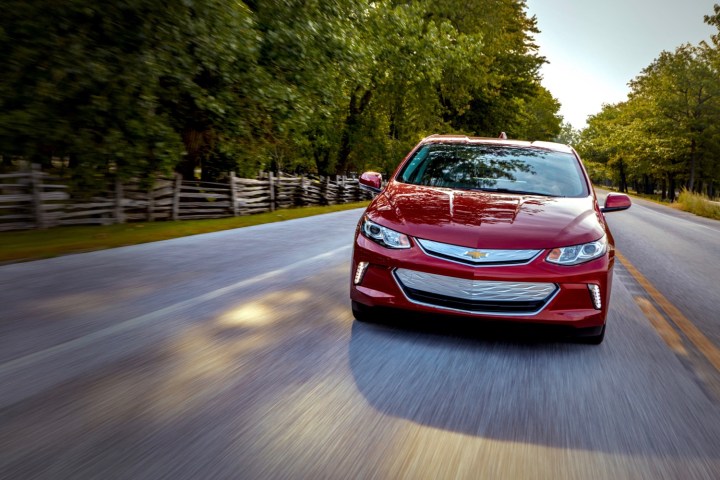
It’s always important to know when to pick your battles. Automakers are working to lower emissions in order to meet stricter regulations, but they’re not all following the same strategy. While many automakers plan to use a mix of hybrids and all-electric cars, General Motors and Volkswagen will skip hybrids in order to focus on going fully electric, according to The Wall Street Journal.
That’s largely due to the massive amounts of money GM and VW plan on investing in all-electric cars. GM has said it will launch 20 all-electric models by 2023, including U.S.-market models for Chevrolet and Cadillac. VW has planned a family of electric cars based on its new MEB platform, including a reincarnated Microbus that’s due in 2022. The German automaker is also launching numerous electric cars under its other brands, including Audi and Porsche.
With so much money being spent on electric cars, there is little reason to invest in hybrids, according to The Wall Street Journal. In an interview with the newspaper, GM President Mark Reuss said it made more sense to throw money at “the answer that we all know is going to happen, and get there faster and better than anybody else.”
“Our strong preference is to go all-in where the market is heading, as opposed to hybrids as a way to hedge our bets,” Volkswagen Group of America President Scott Keogh told The Wall Street Journal. VW doesn’t have any hybrids in its U.S. lineup, although it did previously sell a hybrid version of the Jetta. VW-owned Porsche sells plug-in hybrid versions of its Panamera and Cayenne. Plug-in hybrids can recharge their battery packs using either an internal-combustion engine or by plugging into an external power source, hence the name.
GM has had a complicated history with hybrids. Its initial crop of hybrids — including both larger SUVs and a handful of sedans — didn’t offer much of an improvement in fuel economy. But GM managed to outdo its rivals when it launched the first-generation Chevrolet Volt plug-in hybrid in 2010. Hailed as a “moon shot” at the time, the Volt’s technology was later used in a plug-in hybrid version of the Cadillac CT6, as well as a Chevy Malibu hybrid without a plug. GM discontinued the Volt earlier this year.
Two other major automakers — Ford and Toyota — are taking a different approach, noted The Wall Street Journal. Toyota plans to launch a mass-market electric car, but for now it’s emphasizing its bestselling Prius and other hybrids. Ford has confirmed four all-electric models, but it will also launch hybrid versions of its bread-and-butter pickup trucks and SUVs, as well as a hybrid Mustang. Ford and Toyota have had more consistent success with hybrids than GM and VW, which explains their reluctance to give up on the technology. Having popularized hybrids with the Prius, Toyota in particular has become synonymous with them.


